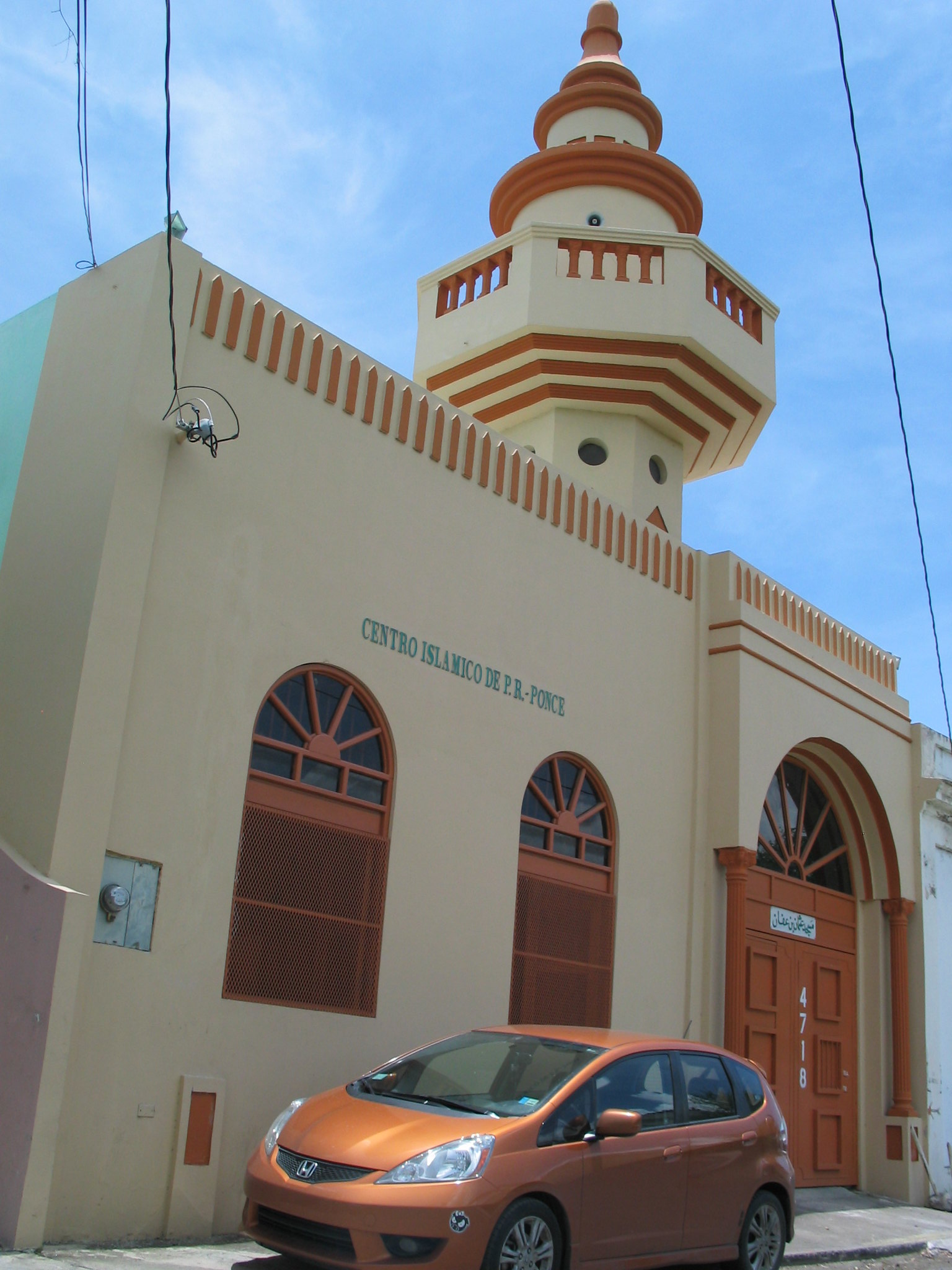Honduras is the only Latin American country which has the largest population of Arab immigrants outside the Western Hemisphere. although, the majority of these Arab immigrants are of Orthodox and Catholic Christian descent totaling something between 150,000 to 200,000, the Muslims form part a fraction of it, that is between 5,000 to 6,000 including the local converts.
Sarah Souli in her post "A visit to the Biggest Little Mosque in Honduras" says:
The introduction of Islam to Honduras is linked to the waves of Arab immigration, explains Rodolfo Pastor Fasquelle, a historian at San Pedro Sula’s Museo de Antropologia e Historia.
“In 1870 the national railroad pact was signed with the British,” Fasquelle said, while giving a tour around the museum’s exhibit of 19th-century artifacts. “It was a great fiasco—it never got past the mountains—but it did connect San Pedro Sula to the coastline. And as the city became an internal port, it became crucial to trade with the outside world.” Goods came, and so did immigrants from Europe, North America, and increasingly, the Middle East. Arab migration came in three waves: from 1895-1915 as the Ottoman Empire suffered a string of crises; from 1925 to 1940 in the wake of the First World War; and again from 1950-1970, after visas became easier to obtain.
In 1984, an Islamic charitable organization was founded, with the main object of taking care of the interests of the Arabs and Muslims in the country, and they have since built a mosque, where they meet and discuss their social and religious affairs, including the education of their children, the most important of which is teaching them the Qur’an and the Arabic language.
For many years there was no mosque / masjid in Honduras. But now there are two masjids: the one in San Pedro Sula, and a smaller one in the capital city of Tegucigalpa. Pakistani factory owners, converted Honduran military generals and Cuban flaneurs are just a few of the people who attend jumu’ah (Friday prayers) in the masjid in San Pedro Sula. Imam Mohammed, a Pakistani who leads the service, says that only around 30 people attend prayers at the mosque on a weekly basis.

Iman Mohammed, who was born in Pakistan, poses for a portrait after Friday prayers.
The revert experiences are unique for the Hondurans, Sarah Souli explains: [2]
“I started studying Islam alone, and the path of Allah came for me,” Colonel Orlando Ajalla Gaños told us. Raised Catholic, the colonel has spent the last nine years commuting weekly to the mosque from his home in Tegucigalpa. “I was always happy but since becoming Muslim I am even more happy—you can call me Saif,” he added, referring to his Islamic name as he adjusted his taqiyah (cap).
Arnaldo Hernandez, a Garifuna fisherman, drives three hours from his home in the coastal town of La Ceiba to attend Friday prayers. He converted to Islam from Christianity 26 years ago, though, as he is quick to point out with a huge grin, “we are all Muslims.”

Iman Mohammed leads the Friday prayer - the prayers are spoken in a mix of Arabic and Spanish to serve the San Pedro Sula mosque’s diverse population of worshipers.
Honduras’s constitution protects freedom and practice of religion—though the government only officially recognizes the Roman Catholic church; all other religious groups are categorized as religious associations and have fewer rights and privileges. [3]
“We haven’t had any problems with racism,” stated Imam Mohammed who gives the Friday prayer sermon at the mosque in Spanish and Arabic languages.
Hernandez, the Garifuna fisherman expressed that “there’s no distinguishing between race and color. We’re all brothers, that’s the base of Islam. It’s a benediction to have this community.”
The Muslim community has its unity and cohesiveness. There are weekly dinners organized by Mr. Yusuf, a Pakistani Muslim who owns a string of factories and is one of the country’s richest men. Everyone contributes to the mosque’s upkeep—a donation box is passed around after the prayers. In this sky-blue Caribbean mosque, the best parts of Islam—equality, fraternity, love—seem to shine.
Disclaimer: The data for this post has been collected from the references as given below. If any one differs with the material contained in this post, one may consult the references and their authors. If someone has more material about the subject, he/she is most welcome to share in the comments box to make the post all encompassing.
To know more about life of Muslims in other non Muslim countries, please visit our page: Islam and Life of Muslims in Non Muslim Countries
You may also refer to our Reference Pages for knowing more about Islam and Quran.
If you like Islam: My Ultimate Decision, and to keep yourself updated on all our latest posts to know more about Islam, follow us on Facebook
Follow @IslamUltimate
Please share this page to your friends and family members through Facebook, Twitter, WhatsApp or any means on Social Media so that they can also be benefited by it and better understand Islam and the Holy Qur'an - Insha Allah (Allah Willing) you shall be blessed with the best of both worlds.



































